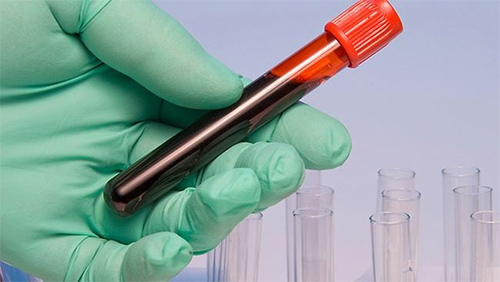
Illumina has joined investors that include Bill Gates and Jeff Bezos in committing more than $100 million toward launching a new company with the ambitious goal of screening for the most frequent types of early-stage cancers through a simple test that measures circulating tumor DNA (ctDNA) in the blood.
The new company, called GRAIL, will use its financing to build and scale a CLIA- and CAP-certified sequencing lab applying Illumina’s sequencing technology and accessing its latest innovations.
GRAIL will also create infrastructure for “what we believe will be the largest clinical sample and clinical trial undertaking for any company in this space,” Illumina CEO Jay Flatley, who will be GRAIL’s chairman, told reporters Sunday during a conference call.
The trial “would have to be a population-based trial involving hundreds of thousands of people,” though details have yet to be decided, added Richard Klausner, M.D., a director of GRAIL who formerly served as National Cancer Institute director and Illumina’s CMO.
GRAIL plans to launch large-scale clinical trials in 2017, after spending its first 12 months of R&D defining a set of assays across multiple tumor types, then narrow down to the tests deemed most promising.
“Our goal is to deliver a pan-cancer test in the 2019 timeframe, with the potential to offer the test specifically for one or more targeted cancers somewhat earlier,” Flatley declared.
Among those targeted cancers, Dr. Klausner said, are breast and lung cancer: “Because we have current but quite imperfect screening, one of the early first and potentially quickest to market uses of this sort of screening modality is to help determine what’s truly false positive versus what’s true positive in both of those.”
“It may be the case that the test is exactly the same” for targeted cancers as the eventual pan-cancer screening, Flatley said Sunday, answering a GEN question during a conference call with reporters. “It’s just that we would be applying it in a much more limited way early on to specific cancers, whereas in the long run it would be intended to be pan-cancer, and cover as many cancers as the clinical trial demonstrates are effective in diagnosing these early cases.”
The more sensitive the test, Flatley said, the larger the potential market for it. That market, he said, could be as large as $20 billion to $40 billion if ctDNA could detect stage 2 across a broad range of cancers—but could grow to more than $100 billion if the tests can detect stage 1 as well as determine tissue of origin.
“GRAIL’s promise is to revolutionize screening across all cancer types, using the sensitivity and specificity of next-generation sequencing to create a molecular stethoscope that measures the ultimate cancer biomarker,” Flatley added. “Our aspiration is that in a few short years, asymptomatic men and women will augment their physicians with a simple blood test that will detect the most frequent types of cancer at an early stage.”
GRAIL will use Illumina sequencers and consumables exclusively under a long-term supply agreement. Intellectual property with applications outside of healthy cancer screening based on ctDNA will be transferred back to Illumina for commercialization as research-use only or in vitro diagnostic products, Flatley said.
GRAIL will be majority owned by Illumina, which has joined ARCH Venture Partners in raising more than $100 million in series A financing, with additional investments from Bezos Expeditions, Bill Gates, and Sutter Hill Ventures.
A five-member board will oversee the new company, which is actively searching for a CEO. That person will join Flatley and Dr. Klausner on GRAIL’s board, as will Illumina’s current chairman William H. Rastetter, Ph.D., and Robert Nelsen, managing director and co-founder of ARCH Venture Partners.
GRAIL has also named an advisory board whose members will include Dr. Klausner; Jose Baselga, M.D., Ph.D., physician In Chief at Memorial Sloan Kettering and president of the American Association of Cancer Research; Dr. Brian Druker, M.D., director of the Oregon Health & Science University (OHSU) Knight Cancer Institute; Mostafa Ronaghi, Ph.D., Illumina SVP and CTO; Donald A. Berry, Ph.D., professor at The University of Texas MD Anderson Cancer Center; Timothy R. Church, Ph.D., professor at the University of Minnesota School of Public Health; and Charles Swanton, Ph.D., group leader at the Francis Crick Institute
“The impact of ctDNA in cancer screening cannot be overemphasized. We are at the gates of a new disruptive technology that could change the way we diagnose and treat cancer,” Dr. Baselga said.













